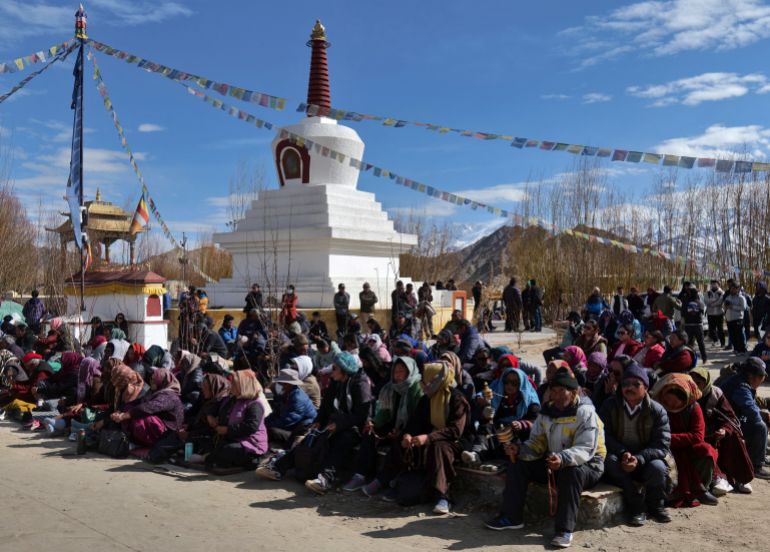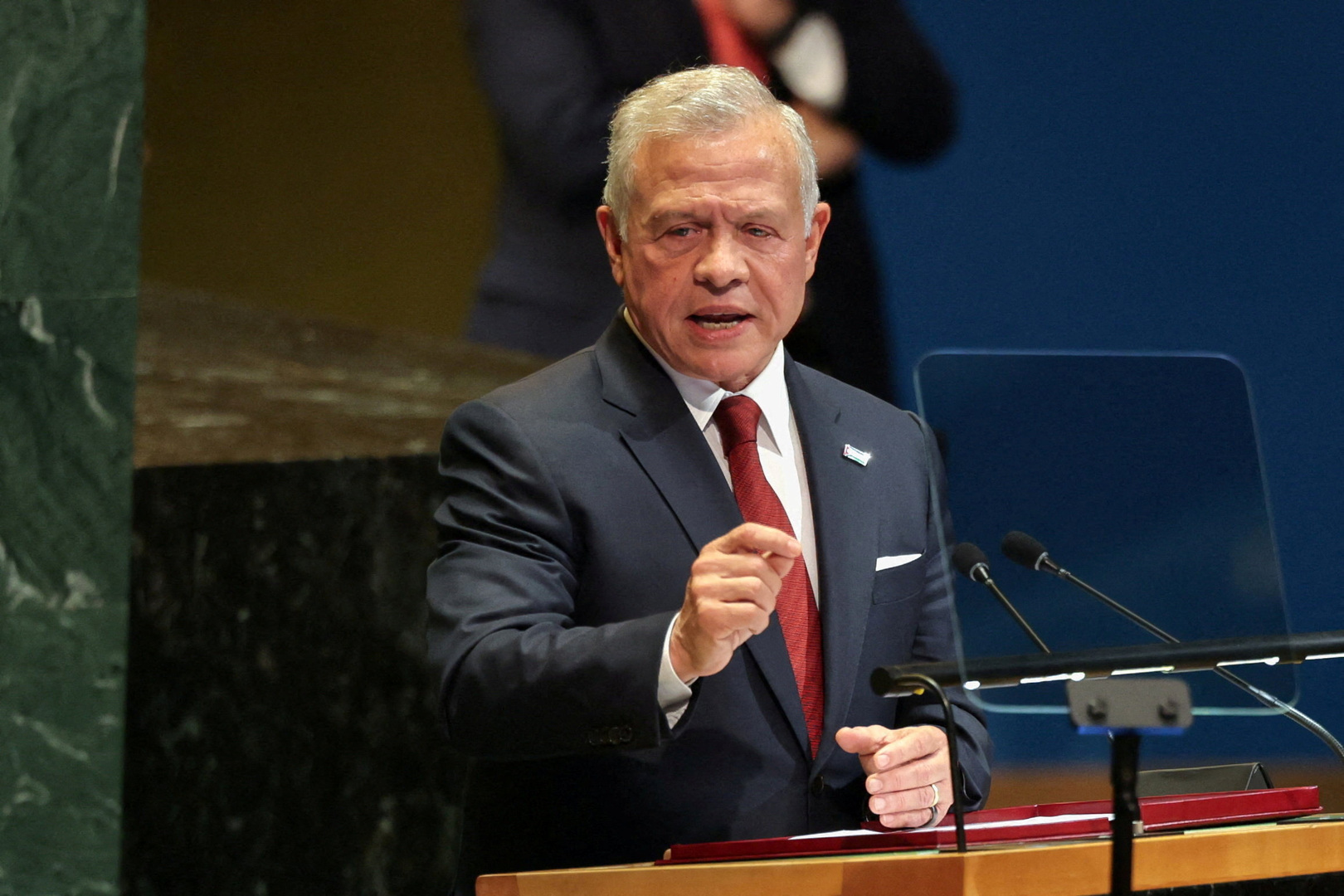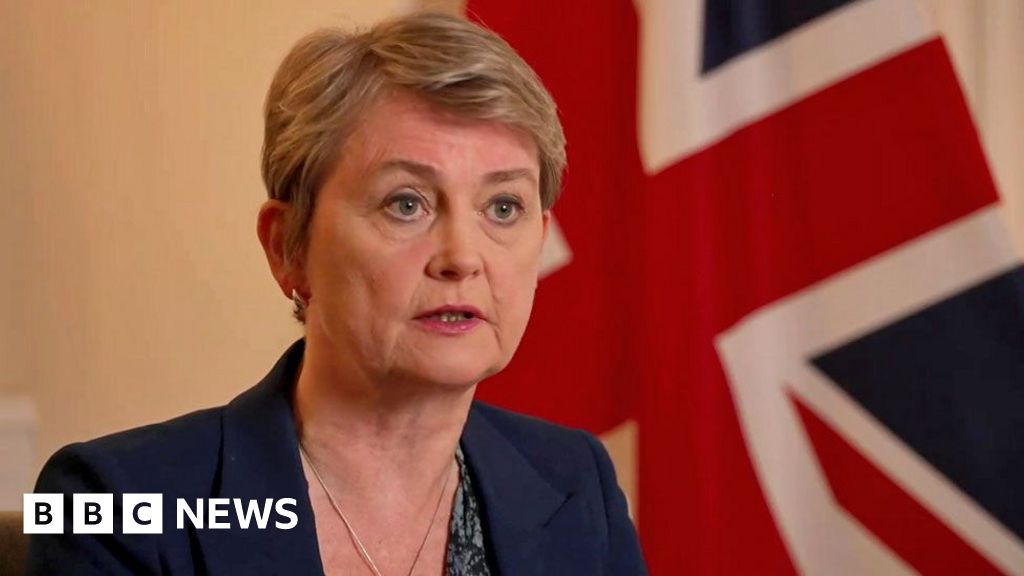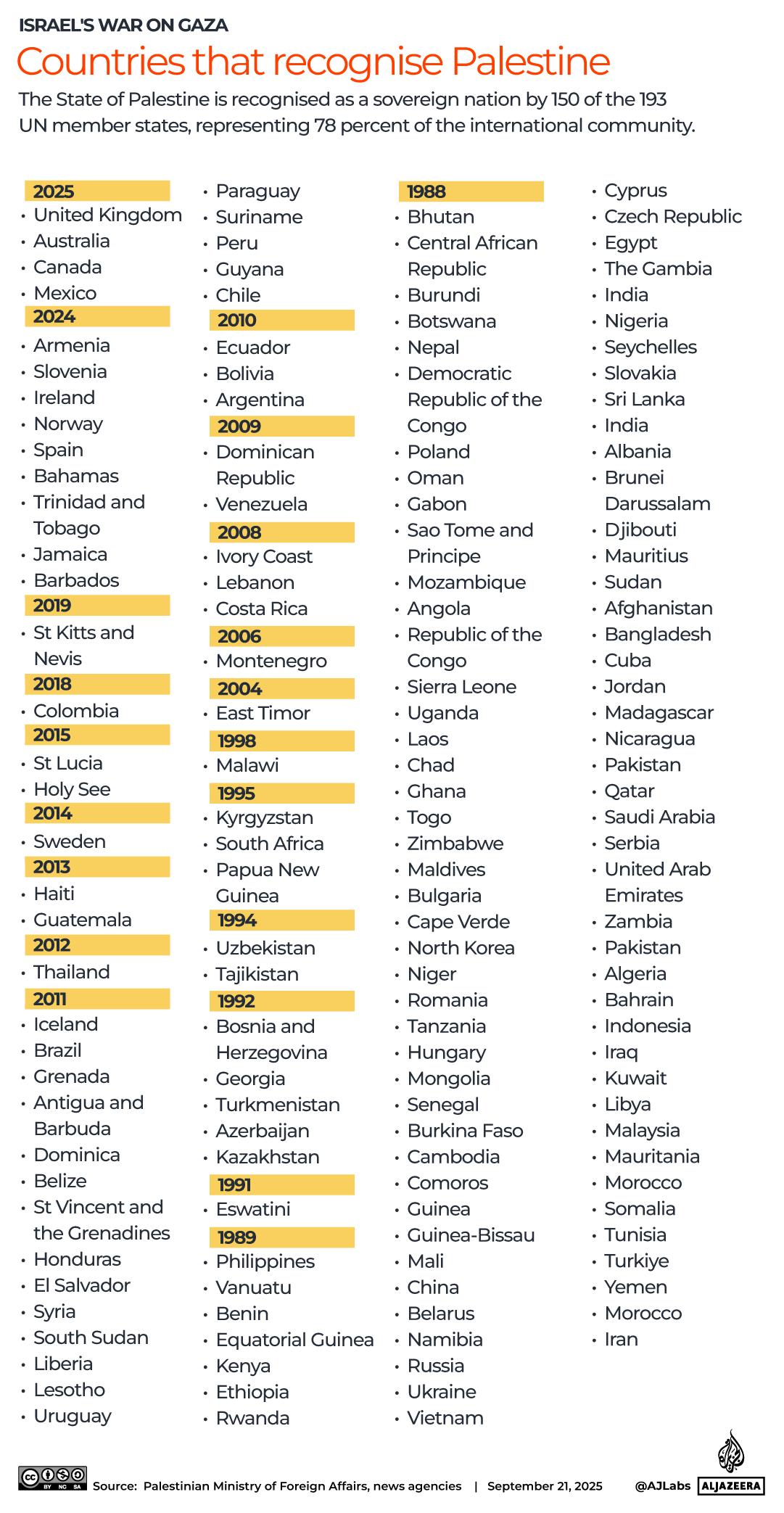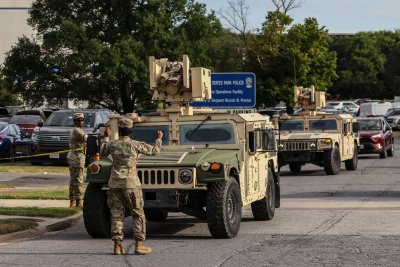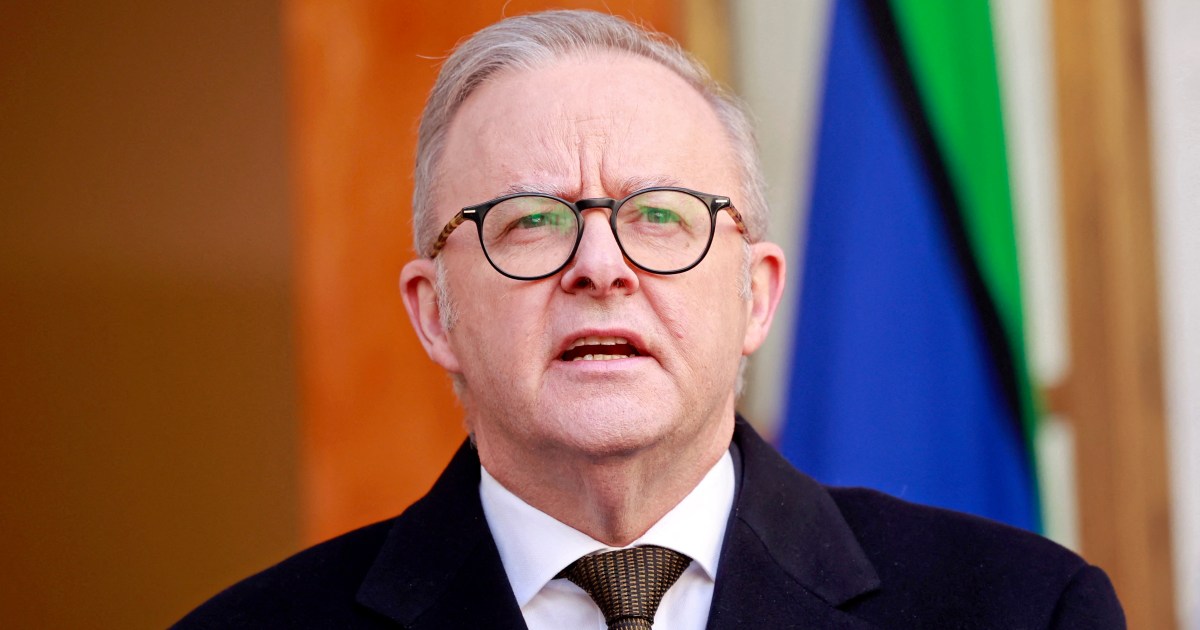Protests seeking statehood in India’s Ladakh turn deadly | Protests News
Leading activist says three to five people feared killed in police fire, but no official word yet on casualty figures.
Published On 24 Sep 2025
A protest in the Indian Himalayan region of Ladakh demanding statehood for the federal territory has turned violent as protesters clashed with police and set fire to a paramilitary vehicle and the office of the country’s governing Bharatiya Janata Party (BJP).
Police fired tear gas on Wednesday and charged demonstrators with batons, injuring dozens of them, police said. Some among the injured were in critical condition, residents said.
Recommended Stories
list of 3 itemsend of list
Authorities banned the assembly of more than five people in Leh district, the capital of the Ladakh region, after the clashes.
No official statement has been released on the number of casualties, but a local activist who has been on hunger strike seeking more power for the region bordering China told Indian media that three to five people are believed to have been killed in police gunfire.
“We have reports that many people have been injured. We don’t know the exact count,” Sonam Wangchuk was quoted as saying by the Indian Express site.
Al Jazeera could not independently verify the casualty figures.
Protests erupted after youth groups called for the shutdown of Leh.

The protests are part of a larger movement in the federally governed region that seeks statehood and constitutional provisions from the Indian government for autonomy over land and agricultural decisions.
Ladakh lost its autonomy in 2019 when Prime Minister Narendra Modi’s government carved the region out of India-administered Kashmir. Since then, the majority Muslim-Buddhist territory has been directly governed from New Delhi.
Protesters have called for Ladakh to be given special status that would allow for the creation of elected local bodies to protect its tribal areas.
At its core, the protests are calling for Ladakh to be included under the Sixth Schedule of the Indian Constitution, which provides provisions for tribal areas and allows local communities to have a say in how the regions are administered.
Wangchuk called for restraint as he called off his hunger strike, which he launched two weeks ago. “My message of peaceful path failed today. I appeal to [the] youth to please stop this nonsense. This only damages our cause,” he said.
In a public notice, District Administrator Romil Singh Donk announced a ban on demonstrations, public gatherings and inflammatory speech.
Activists and local politicians in Ladakh have accused Modi’s government of not addressing their concerns. Several rounds of talks between local politicians and representatives from New Delhi in the past few years have not yielded results.
The next round of talks is expected to take place on October 6.
Ladakh, which shares a long border with China, is a strategically important territory for India. Ladakh was the site of deadly clashes between Indian and Chinese soldiers in 2020 that strained the ties between the two Asian countries. The two Asian giants have recently moved to mend their ties in the wake of Trump’s punishing tariff war.
